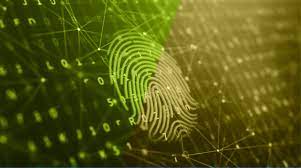Lawyer with 15 years of legal experience, specialization: family and civil law, inheritance, contract law, criminal cases, administrative cases, cases involving foreigners, migration law
In the modern world, the development of digital technologies creates new opportunities for criminals. Theft in cyberspace is becoming increasingly common, and law enforcement agencies are facing new challenges in investigating such crimes. In this article, we will look at the peculiarities of cybercrime related to theft and the methods of its investigation in Ukraine.
Cybercrime and theft
Cybercrime includes a variety of unlawful acts committed through computer networks and systems. Theft in the digital world can take the form of theft of personal data, bank accounts, financial resources, intellectual property and other valuable information. The main types of cyber theft include:
- Phishing - a fraud that involves obtaining confidential user information by deception through emails, websites or social networks.
- Malware - the use of viruses, trojans and other software to steal data from computers and mobile devices.
- Attacks on banking systems - theft of funds through illegal access to bank accounts and payment systems.
- Theft of intellectual property - illegal copying and use of copyrighted works, patents and other intellectual property.
Methods of investigating cyber theft
- 1. Cyber police and specialised units: Ukraine has a cyber police, a specialised unit of the National Police that investigates cybercrime. Its officers have special knowledge and skills to detect, document and investigate crimes in cyberspace.
- 2. Technical expertise: Technical expertise includes the analysis of computer systems, networks and data. Experts examine digital evidence, detect traces of criminal activity and identify criminals. An important role is played by analysing log files, recovering deleted data, and investigating malware.
- 3. Cooperation with international organisations: Cybercrime is often international in nature, so cooperation with foreign law enforcement agencies and international organisations is an important part of an effective investigation. Interpol, Europol and other organisations provide assistance in investigating cross-border crimes.
- 4. Information campaigns and education: Preventing cyber theft requires active work with the public. Information campaigns and educational programmes are aimed at raising public awareness of cyber defence and crime prevention methods. It is important to educate users on the basics of safe internet use and personal data protection.
Challenges in investigating cyber theft
- 1. Difficulty in identifying criminals: Anonymity in cyberspace makes it difficult to identify criminals. The use of proxy servers, VPNs and other concealment technologies complicates the work of law enforcement.
- 2. Rapid development of technology: Criminals adapt quickly to new technologies, which requires constant updating of law enforcement knowledge and skills. Continuous training and improved investigative techniques are essential to effectively combat cybercrime.
- 3. Jurisdictional challenges: The cross-border nature of cybercrime creates jurisdictional challenges. Different laws and procedures make it difficult to investigate and prosecute criminals operating in different countries.
If you have been a victim of cybercrime or have been accused of committing a theft, contact the professional criminal lawyers at Consultant.net.ua. Our experienced lawyers, including a theft lawyer, will provide you with qualified legal assistance. A lawyer under Article 185 of the Criminal Code will ensure the protection of your rights and interests, helping you to resolve complex legal issues. Lawyer for 185 of the Criminal Code.
Conclusion
Investigating theft in cyberspace requires law enforcement agencies to apply specialised methods and overcome numerous challenges. The effective fight against cybercrime is only possible with the continuous improvement of technology, cooperation with international organisations and active outreach to the public. Qualified lawyers play an important role in this process, helping to protect the rights of victims and suspects.

































